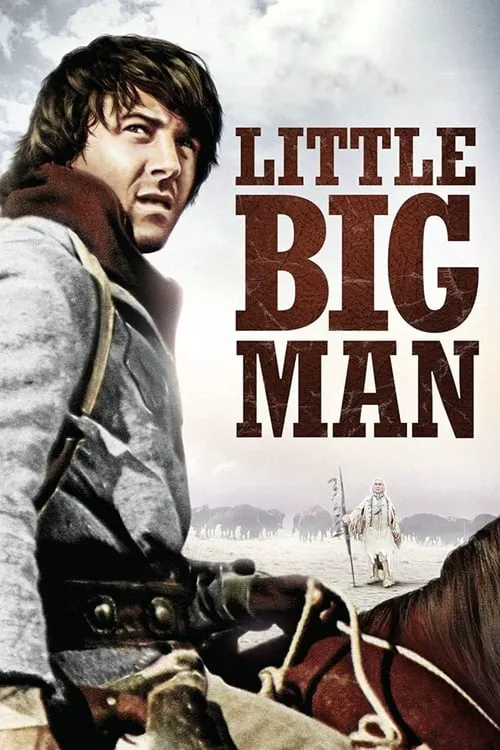Little Big Man

Plot
The film "Little Big Man," directed by Arthur Penn, is an epic western that reimagines the Battle of Little Bighorn from the perspective of Jack Crabb, a white man raised by the Cheyenne tribe. The movie, which combines elements of adventure, comedy, drama, and satire, was released in 1970 and starred Dustin Hoffman as the titular character. Born in 1824, the protagonist Jack Crabb begins his life in a covered wagon in the midst of a family that had migrated westward. As fate would have it, Jack would soon find himself abandoned by his parents during a massacre. The young boy, only five years old at the time, is rescued and taken in by a Cheyenne warrior named Wild Bill. This chance encounter sets Jack on a path that will ultimately shape his identity and destiny. Under the guidance of Wild Bill and later, Sun Tree, a wise elder, Jack embarks on a journey of discovery about his own identity and the values of the Cheyenne tribe. Jack quickly learns to speak the Cheyenne language and adopts their ways, eventually becoming an integral member of the tribe. He witnesses and participates in many of the tribe's important rituals and learns to appreciate the value of community and family that these practices foster. However, Jack's life with the Cheyenne is not without challenge. Upon his return to civilization after being forced to adapt to white culture for a brief period, Jack encounters ridicule and disdain from the members of his community. As a result, Jack is led back to the Cheyenne, where he feels a true sense of belonging. The film takes a pivotal turn when Jack encounters General George Armstrong Custer, who would later lead the infamous 7th Cavalry Regiment against the Cheyenne and their allies at the Battle of Little Bighorn. Unbeknownst to Custer, Jack has become a skilled warrior, possessing extensive knowledge of the land and an uncanny understanding of the culture and values of the Cheyenne people. Custer's ignorance of the tribe's customs and geography, coupled with his pride and arrogance, ultimately proves to be his downfall. One of the most compelling aspects of the film is its exploration of the historical clash between the American West's indigenous populations and the encroaching forces of colonialism. Jack's narrative allows the audience to witness the brutal reality of the Indian Wars, as well as the devastating impact of European diseases on Native American populations. This nuanced portrayal is tempered by a subtle humor that adds depth to an otherwise dark narrative. Through Jack's story, which is framed as an elderly man reflecting on his past, the film masterfully blends history, drama, and satire to create a timeless classic. Penn's direction is complemented by a powerful narrative, memorable characters, and outstanding performances, making "Little Big Man" a must-see for anyone interested in Westerns or the tumultuous history of the American West.
Reviews
Recommendations




